How to choose a heating boiler for your home
To choose a boiler for heating a private house, you need to take into account many factors. For this, it is necessary to have information about the main features of each type of boilers, their advantages and disadvantages.
The content of the article
How to choose a boiler for home
When choosing a heating boiler, several factors must be taken into account at once. The first is which fuel is the most affordable in your area. This means not only the price, but also the availability of this type of fuel in warehouses or the possibility of its production / purchase without any problems.
The second thing to pay attention to is the possibility of autonomous operation. If someone is constantly in the house, this item can be omitted. But if during the working week everyone is at work or school, then it is better if the boiler for heating a private house can work for a long time without human intervention.
The third factor is ease of use and maintenance. Not everyone and not always want to visit the heating boiler regularly. In this case, it is better to take the most automated version. Yes, they are more expensive, but they require minimal maintenance. In terms of maintenance - some fuels require regular cleaning - combustion chambers or burners. If you are not happy with this aspect, you should choose a boiler that needs minimal prevention. These, by the way, are gas and electricity units.
If there is gas
If a gas main runs near the house, it makes sense to consider buying a gas boiler. At the moment, in most regions, gas heating is the cheapest. At the same time, gas heating boilers are autonomous - you can not approach them for weeks, practically do not require maintenance work. The only drawback of such a solution is a considerable amount, which costs the connection to the backbone.
Types of gas boilers
By type of location, gas heating boilers are wall-mounted and floor-standing. The maximum power of wall-mounted options is 60 kW, floor-standing units are also 100 kW and more. In addition, some models can operate in a cascade. Why are wall mounted gas boilers good? The fact that they can be mounted in the kitchen, especially since they are suitable for design kitchen design.
A separate room is required for the installation of a gas floor boiler with a capacity of more than 60 kW. This can be a room allocated in the house or an extension with a separate entrance - a boiler room. Read about the requirements for such premises for installing a gas boiler. here.
You can install a gas boiler even if there is no mains, but it is possible to buy liquefied gas. In this version, a floor-standing gas boiler is installed with a burner that can work with liquefied gas (usually a reconfiguration is required). It is difficult to say at once about the efficiency of such heating: it is necessary to calculate how much 1 kW of heat costs when using available fuel options. Draw conclusions based on the results of calculations.
Burner types
Two types of burners can be installed in wall-mounted gas boilers - atmospheric (open) and turbocharged (closed).Atmospheric burners require a chimney with good draft, turbocharged ones are connected to a coaxial chimney that can be taken out directly through the wall near the boiler.
These combustion chambers also differ in the way they take off combustion air. In open burners, air is taken from the room, therefore, in such rooms, supply ventilation of sufficient power must be equipped. In closed combustion chambers, oxygen is supplied through one of the pipes of the coaxial flue. Therefore, there are no special requirements for ventilation. But turbocharged boilers have their drawbacks: the chimney brought out into the wall can overgrow with frost, drift in with snow, etc. In this case, the boiler will not turn on.
When choosing a gas boiler, you should also pay attention to the number of positions in which a gas burner can work. There are three modifications:
- Single stage. There are only two modes of operation - full power and off. The cheapest burners, but the gas consumption is the highest, that is, such boilers are uneconomical in operation.
- Two-stage. There are two modes of operation - 100% power and 50%. The third position is off. These burners are already more economical, with them it is easier to maintain the set temperature.
- Modulated. The most expensive, but also the most economical burners. Depending on the need, they can be turned on both at full power and at 10%, and the regulation is smooth.
It is clear that in the long term, a boiler for heating a private house with a modulating burner is better. They are more expensive to purchase, but more economical during operation.
Condensing gas boilers
Above we were talking about traditional gas boilers for heating a private house. They are also called high-temperature ones, since at the outlet they give out a coolant with a temperature of 45-50 ° C and above. Such units are ideal for working with radiator heating.
Condensing boilers are distinguished by the fact that they are efficient when operating in low temperature mode - with a return temperature of no higher than + 40 ° C. In this case, the gas is used most economically - due to the condensation of the vapors contained in the flue gases, more heat is transferred, which leads to a significant decrease in gas consumption.
This feature of condensing boilers makes them ideal for home heating. warm water floors... This boiler for heating a private house can output a coolant at + 35 ° C, then the return temperature will be about + 30 ° C. Due to this, heating will be economical.
But, as usual, there were some drawbacks. The first is that the resulting condensation is very caustic. Therefore, install the chimney only from stainless steel, and of high quality. The second drawback is that the price for condensing boilers is higher than for traditional ones of the same capacity. This is due to a more complex circuit and the fact that materials resistant to condensation are used.
On electricity
If there is a technical feasibility (a significant amount of kilowatts has been allocated), you can supply an electric boiler for heating a private house. For ease of operation, these are better units. If there is electricity, they work in a given mode, practically silent, do not require maintenance. Their main disadvantage is the large sums that have to be paid for heating.
Types of electric boilers
Today there are three types of electric boilers for heating a private house:
- On heating elements. The most common and common type of electric boilers. Units that can operate in several power modes (multistage) are more economical in operation. Disadvantages - rather low efficiency - due to losses for heating the heating elements themselves. The advantage is simple repair and relatively inexpensive consumables (heating elements).
- Induction. These boilers use the generation of heat when electromagnetic induction occurs. In such electric boilers, water is heated when it passes through an inductive coil. Sellers (and owners of such boilers) say that such installations are more economical than heating elements - there are no losses for heating heating elements, there is practically no inertia. The advantages of such boilers include their small size. They represent a small piece of pipe - from 35 cm to a meter long (depending on power). The disadvantage of such equipment is that in the absence of a coolant flow, the induction boiler overheats and burns out very quickly.
- Electrode. This type of boilers for heating a private house is the least popular, although it is also positioned as more economical. The thing is that an electrolyte must circulate in the pipes - water with certain electrical characteristics. This is necessary because the coolant heats up due to the release of heat when current passes between the two electrodes. The device is simple, but it requires monitoring the state of the coolant and electrodes. The fact that the heating system is actually under voltage does not add to its popularity.
In general, if you are thinking of supplying an electric boiler for heating a private house, choose between a traditional heating element or induction.
A way to make heating cheaper
If there are multi-zone tariffs in the region and the established two-tariff electric meter, using an electric boiler to heat your home can be made less expensive. For this, a large-capacity heat accumulator is installed in the system. The water is heated in it during the night, lower tariff. During the day, when the expensive tariff is in effect, the boiler is turned off and the temperature is maintained due to the transfer of heat stored in the heat accumulator.
Solid fuel boilers
Despite all the disadvantages, solid fuel boilers for heating a private house are used in most cases. Probably, this is largely due to habit and traditions, but the fact remains that more solid fuel boilers are installed in our mill than all others.
Basically, two types of solid fuels are used for heating - wood and coal. What is easier to get and cheaper to buy, so basically and drowned. And the boilers for coal and firewood must be used differently: in wood-burning solid fuel boilers, the loading chamber is made of a larger volume - so that more firewood can be laid. In coal-fired TT boilers, the furnace is made smaller in size, but with thicker walls: the combustion temperature is very high.
Pros and cons
The advantages of these units include:
- Inexpensive (relatively) heating.
- Simple and reliable boiler design.
- There are non-volatile models that work without electricity.
The disadvantages are serious:
- Cyclic operation. The house is hot and cold. To level this drawback, a heat accumulator is installed in the system - a large container with water. In it, during the active combustion phase, heat is stored, and then, when the fuel fill burns out, the stored heat is spent to maintain normal temperature.
- The need for regular maintenance. Firewood and coal must be laid, kindled, then the intensity of combustion must be adjusted. After burning out, the firebox must be cleaned and the process started anew. Very troublesome.
- Inability to leave the house for a long time. Due to the cyclical nature of the work, the presence of a person is necessary: it is necessary to throw up the fuel, otherwise the system may freeze during a long idle time.
- The process of filling fuel and cleaning the boiler is a rather messy business.When choosing an installation site, this should be taken into account: the boiler should be placed as close to the front door as possible so as not to carry dirt through the entire room.
Generally speaking, using a solid fuel boiler for heating a private house is an inconvenient solution. Although the purchase of fuel, as a rule, is relatively inexpensive, but if you count the time spent, it is not so cheap.
Long burning boilers
Long-burning boilers have been developed to increase the gap between fuel fillings. They use two technologies:
- Pyrolysis. Pyrolysis solid fuel boilers have two or three combustion chambers. The fuel tab in them burns with a lack of oxygen. In this mode, a large amount of flue gases are formed, most of which are flammable. Moreover, when burning, they emit much more heat than wood or the same coal. These gases enter the second chamber, where air is supplied through special holes. Mixing with it, flammable gases ignite, releasing an additional portion of heat.
- Top burning mode. In traditional solid fuel boilers, the fire spreads from the bottom up. Because of this, most of the bookmark burns, the fuel burns out quickly. During active combustion, the system and the house often overheat, which is very uncomfortable. When using top burning, the fire is ignited only at the top of the bookmark. At the same time, only a small part of the firewood burns, which equalizes the thermal regime and increases the burning period of the bookmark.
How effective are these technologies? Quite effective. Depending on the design, one tab of firewood can burn from 6-8 to 24 hours, and coal - from 10-12 hours to several days. But to obtain such a result, it is necessary to use high quality fuel. Both firewood and coal must be dry. This is the basic requirement. When using wet fuel, the boiler may not even go to the smoldering mode, that is, it will not start heating. if you have woodcutter with a two to three year supply of firewood or an extensive shed in which coal is stored, a long-burning boiler for heating a private house is a good choice. Better than normal.
Liquid fuel
Heating boilers for a private house on liquid fuel are the least common. There are too many disadvantages of this type of heating:
- Fuel is expensive.
- It must be stored somewhere, and this is a large container that must be installed somewhere not very far from the house so that fuel can be supplied to the boiler.
- For normal operation of heating, it is necessary to heat the storage tank, since at low temperatures the heating oil thickens and clogs the burner.
- During operation, the burner makes noise and smells, so such equipment requires either a separate boiler room or an extension, but with good sound insulation and ventilation.
In general, it makes sense to install an liquid fuel boiler for heating a private house if you have a free (or almost) source of fuel. In all other options, it is better to use other heating equipment.
Pellet boilers
Pellet boilers are difficult to classify, therefore they are usually discussed separately. The fuel for this type of boiler is small pellets made from compressed sawdust. A hopper is made to store the pellets near the boiler. Its size determines the battery life of the equipment. With enough space, a bunker can be made for several tons of fuel. The minimum size is a couple of buckets, which is enough for a day of work.
The pellet heating boiler is equipped with a special burner. Pellets from the hopper are automatically fed to the combustion zone, where they burn with almost no residue. Granules of normal quality give only 3-5% ash. Therefore, cleaning is rarely required - once a week or even once every few weeks.The equipment is fully automated, with a sufficient supply of fuel, you can not visit for weeks.
But here, too, there were some drawbacks. The first is the high price of equipment. The second is the exactingness to the quality of the pellets. They should have low ash content, good heating value, should not break and crumble. Otherwise, a pellet boiler for heating a private house is a good choice. Its plus is that waste from the woodworking industry is used.
Combined boilers
There is also such a modification of heating boilers as combined heating devices. The most popular option is a solid fuel boiler with several electric heating elements. Such units, while firewood or coal is burning, work as TT equipment, when the fire goes out, the boiler cools down slightly, the electrical part turns on. In this case, heating elements are not able to fully heat the house, but they manage to support the system. That is, it will not be cold in the house in the morning. And in the case of a long absence, the heating elements will not let the system freeze.
Another popular option is TT combined boilers with oil burners. These units have two separate combustion chambers. One for solid fuel, the other for a burner with liquid fuel.
The advantages of such boilers are obvious: several types of fuel can be used. The disadvantage is the high price and average efficiency - the efficiency of each of the parts is not too high. So a combined boiler for heating a private house is a controversial decision.
So how to choose a boiler for heating a private house
To make it easier to navigate when choosing, let's organize the information. Let's consider the most typical requirements that affect the choice of the type of boiler:
- The most economical heating. The cheapest way is to heat with wood / coal and gas. Next come pellets, liquid fuels and electricity. In general, this is true, but the situation strongly depends on the region. Somewhere cheaper will be electricity, somewhere liquid fuel. In general, it must be considered.
- The degree of autonomy. The most automated are gas, electric and pellet units. They can be left unattended in operation. Liquid fuels require little attention. The least automated - solid fuel.
- Difficulty connecting.The most difficult thing is with registration and connection of gas. There may be problems with the allocation of power for electric heating - not all substations have a reserve. With the rest, everything is simple: the main thing is to follow the recommendations for a safe installation.
Considering the availability and availability of fuel, making your choice is no longer difficult.

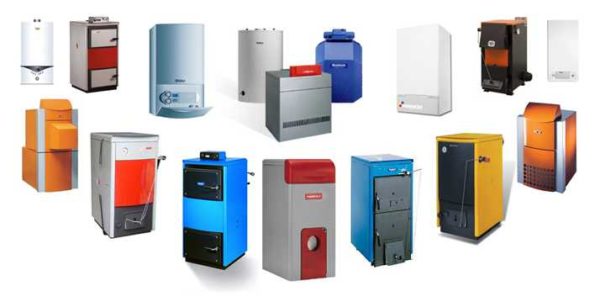

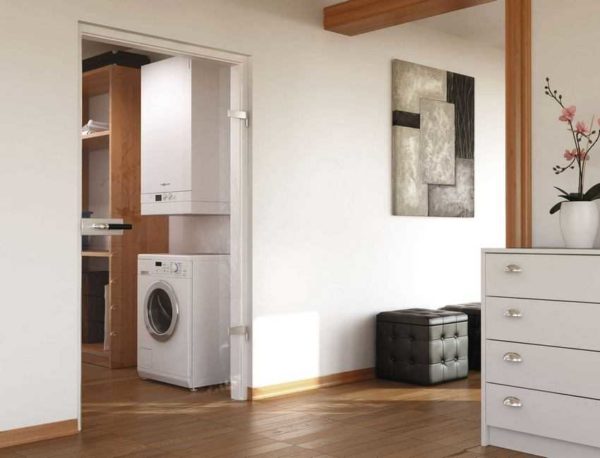
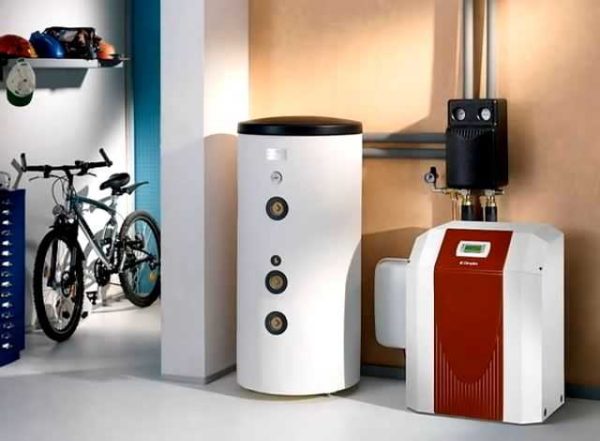
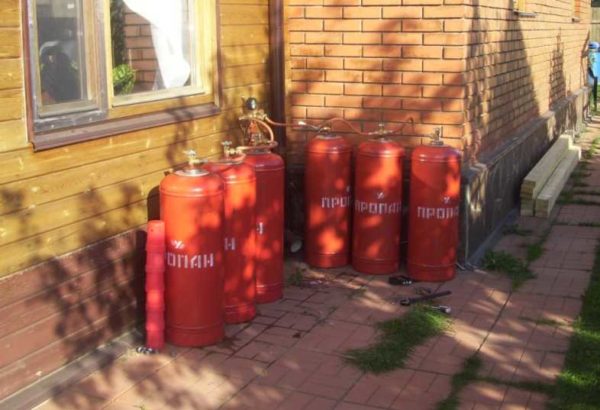
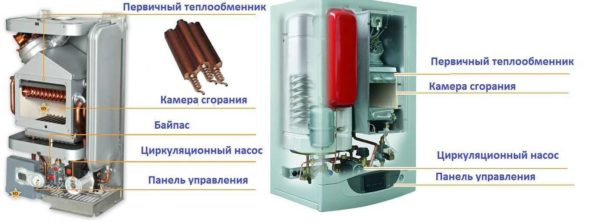
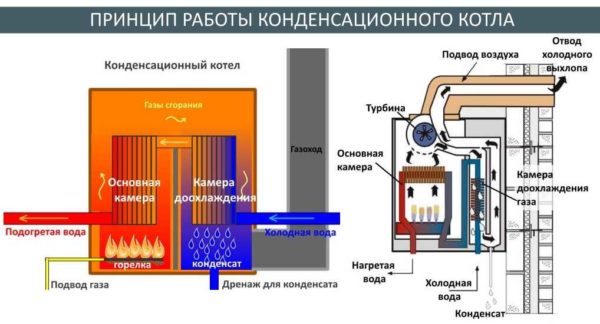
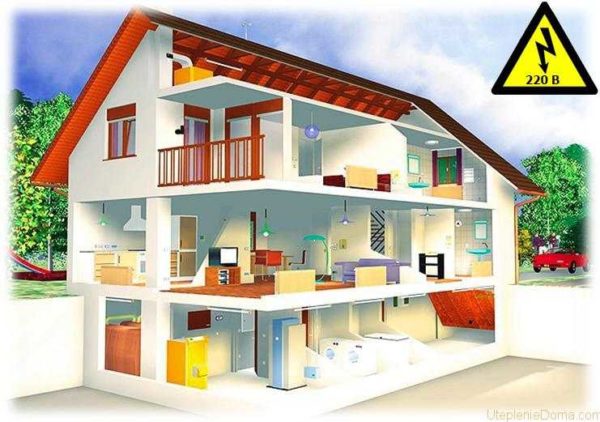
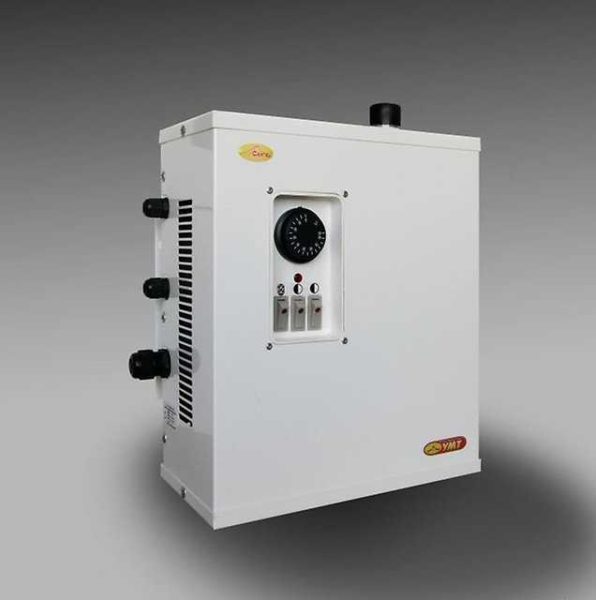
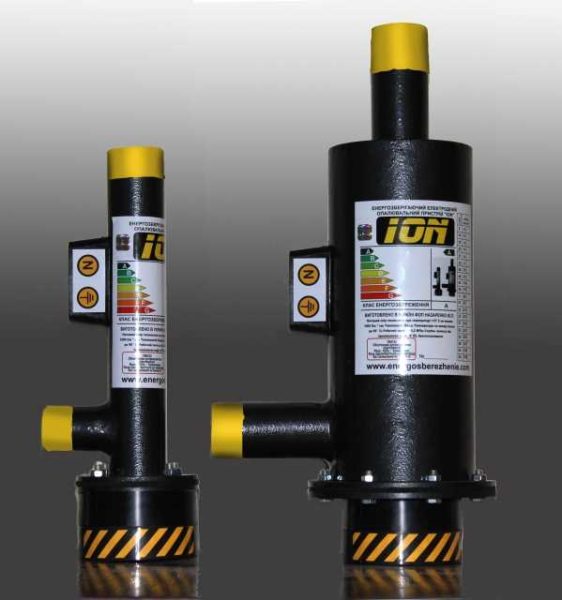
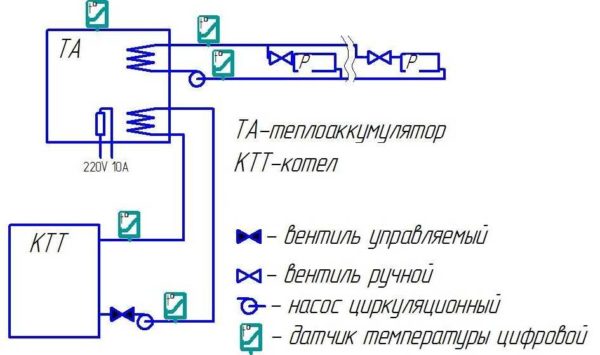
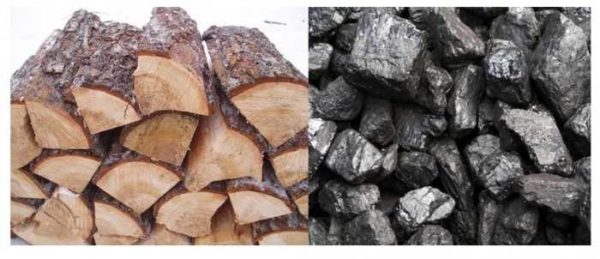
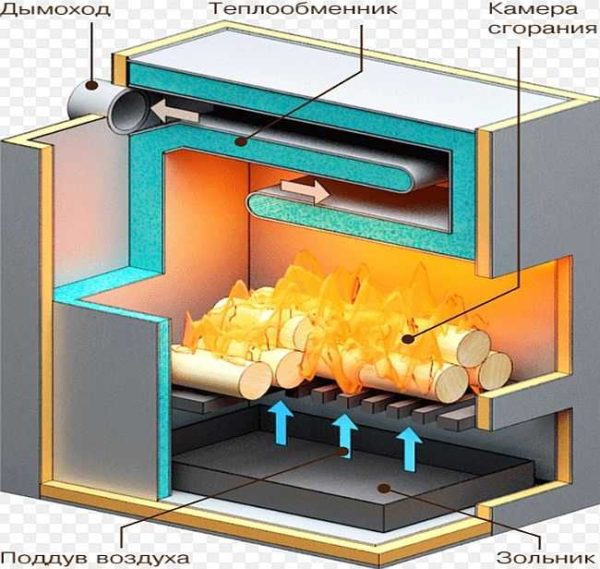
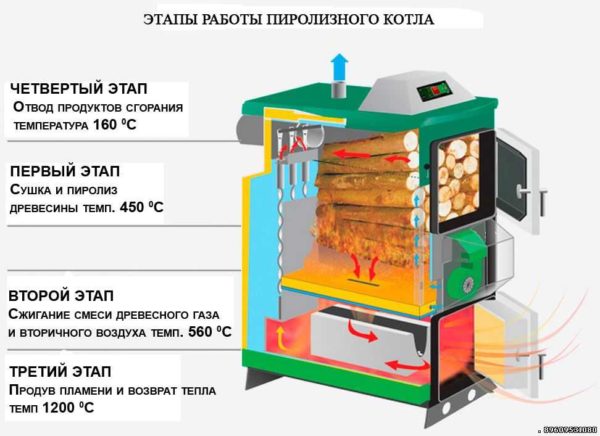
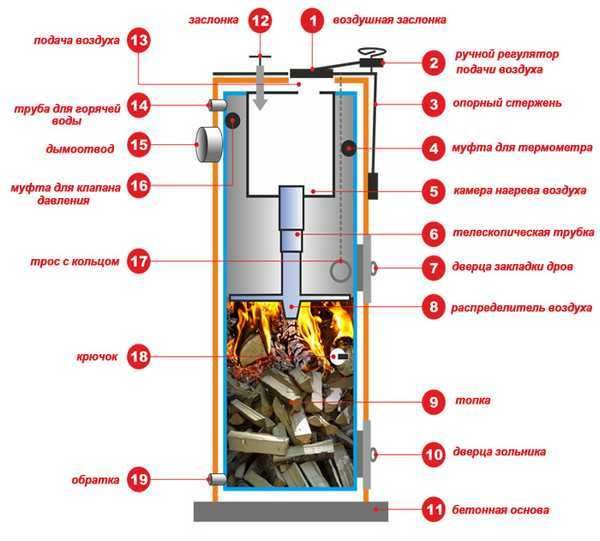
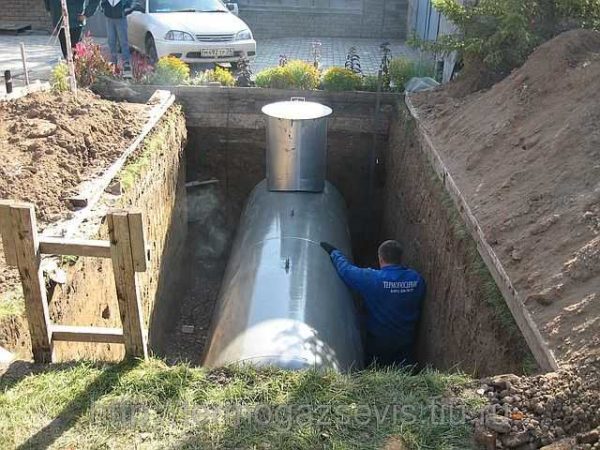
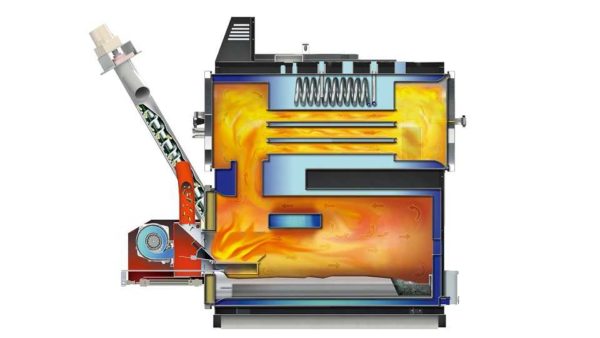
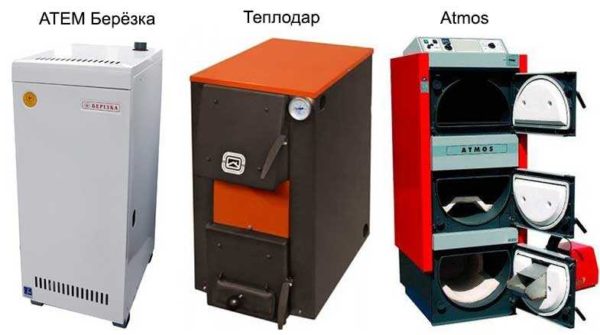
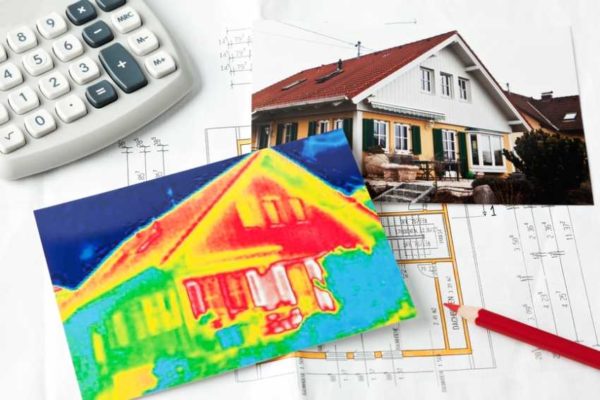
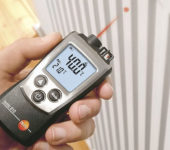
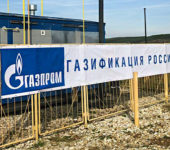
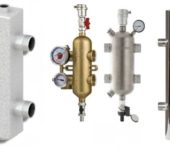
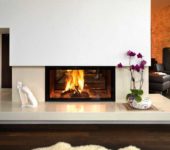
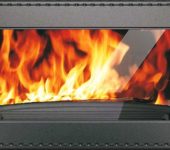





How to contact the site administrator?
We sent a letter to the mailing address you provided.
Hello everyone!! I have been building a dacha for the second year and now the house is already standing, I am supplying water now and I have to think about heating. Who bought what boilers? Which one do you recommend? House 105 sq.
Good day!! And what is the house? Log house or stone? I put a Karelian log house, I like it very much). I have read and studied so much information about heating that I can give lectures on this topic. Joke! I will give a couple of tips, but I understood a lot during the buying process. The most important thing when choosing a boiler is efficiency, the lower the temperature in the pipe, the more heat is used to heat the water.Pay attention to the steel, it should be thick. thick steel. And the boiler must necessarily be not demanding on the quality of the pellet, since I did not want to bother with one company. I found all this in DOZATECH boilers, a domestic high-quality boiler at a good price. Consider this option.
Oh, interesting! I once heard about this company, I forgot. Thanks for reminding me. And what about the heat exchanger?
Go to the site to read, there is a lot of information about all the boilers. But I will say right away that DOZATECH boilers have a modernized heat exchanger. Instead of the usual 1x-2x-3x running structures, they have 5, which allows you to achieve a real efficiency of 91% and much more economical fuel consumption. I'm happy in general !!
We chose a solid fuel boiler. Gas only in cylinders, and electricity is expensive to burn. The slingshot boiler was perfect for us. It is suitable for such economical fuels as pellets and coal). In addition, it burns for 2-3 days in pellets.
After the construction of a new house, I first installed an electric boiler, but the price of electricity, hoo, winds up too much, so I switched to a solid fuel boiler sling. And the electric boiler was left as a backup option. Stropuva heats up excellent, the temperature in the house does not fall below 20 degrees, even in severe frosts, and it heats for a long time without additional loads
I have a boiler from stropuva, very powerful, the house heats up perfectly. Actually, in our cottage community, everyone who can put themselves a stropuva, this is definitely the best option. And it burns for a long time, on coal it turns out up to 5 days.
I also stopped at the pellet machine, I bought Dozateh. I thought for a long time, pondered, I counted everything, and it was this 20 kW boiler that turned out to be the cheapest in terms of installation and heating of the house. The efficiency is high due to 5 lines in the heat exchanger, the large pellet receiver is large, the steel is thick, everything is done in good faith, it will not burn out for sure. Well, the first winter showed that I really was not mistaken.
I agree with you, Vasily. I bought a pellet boiler Dozatech a year ago, I'm happy with everything: with a five-way heat exchanger, that fuel is consumed economically, and it is also convenient that in addition to pellets, you can use other fuel.